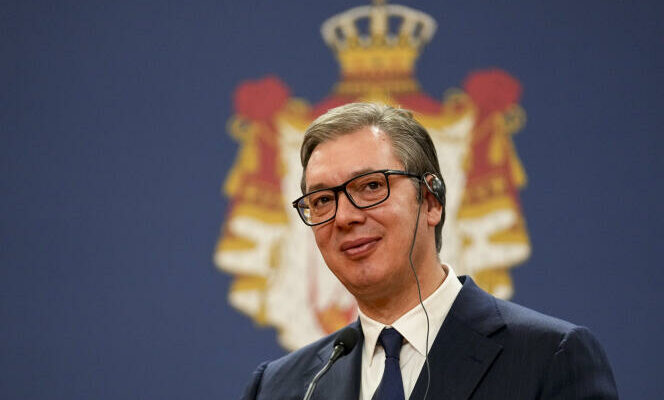That day, the absence of Aleksandar Vucic did not fail to fuel tensions. On October 16, the Serbian president preferred to miss the summit held between the European Union (EU) and the Western Balkans in Albania to go to Beijing, in order to sign a trade agreement with China. A choice which says a lot about the complexity of relations between Europeans and this region torn by political disputes – and where China, like Russia, has a certain influence.
These questions will be at the heart of the new summit organized between the two parties, Wednesday December 13, in Brussels. “The goal is as much to confirm our commitment to the region as to strengthen their economy”, summarizes a European diplomat. In November, the Commission proposed a “growth plan” to these six countries (Albania, Bosnia-Herzegovina, Kosovo, North Macedonia, Montenegro, Serbia), supposed to offer them certain advantages, such as the free movement of goods and people. , before their formal accession to the EU, the prospect of which is still distant.
In detail, they will be granted 6 billion euros in aid between 2024 and 2027, on condition of implementing reforms and developing the common regional market. “This could both pacify relations, attract investors and promote convergence with the EU”analyzes Florent Marciacq, associate researcher at the French Institute of International Relations.
China, second largest investor in the region
However, some local political leaders are reluctant to do so, “and building a common market between these poorly complementary economies is not easy”explains Jean-Arnault Dérens, historian and editor-in-chief of Balkan Mail. “There are significant non-tariff barriers between them: complex procedures, long waiting times at borders, politically influenced boycotts – for example by Kosovo on Serbian products in 2018 and 2023”adds Peter Tabak, specialist on the subject at the European Bank for Reconstruction and Development.
Although the region has weathered the Covid-19 crisis better than expected, it remains economically fragile. “Its gross domestic product [PIB] per capita ranges from only 34% of that of the EU for Albania to 50% for Montenegro »illustrates Peter Tabak. “Serbia and Bosnia-Herzegovina have a relatively developed industrial base, representing 13.5% and 14% of GDP respectively, while Albania and Montenegro are more dependent on tourism”adds Diana Karachanski, economist at Coface.
You have 30% of this article left to read. The rest is reserved for subscribers.
